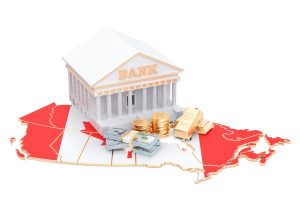The US dollar retreated across the board versus major pairs as the dovish tone from the Fed’s latest monetary policy linger. Oil prices rose on the combination of a weak dollar and rising supply uncertainty after Iran shot down a US drone.
The loonie rose as inflation data on Wednesday gives some breathing room to the Bank of Canada to stay put as other major central banks are forced to roll back into easing mode.

Trade optimism has pushed stock markets higher as presidents Trump and Xi will meet in Japan while taking part in the G20. The USMCA continues rolling through its ratification stage, with Mexico already approving the deal and positive comments from US Rep Lighthizer. Prime Minister Trudeau is in Washington and both nations are ready to push the deal through into legislation.
OIL – Crude Higher After US Drone Shot Down and Soft Dollar
Oil prices surged after Iran shot down a US drone as the relationship between the two nations was already tense. West Texas Intermediate jumped more than 6 percent and Brent 4.46 percent as US President Trump tweeted that Iran had made a big mistake.
Iran has threatened to close the Strait of Hormuz and with the tanker attacks and now this latest incident really puts a lot of uncertainty on global crude supplies. Disruptions have boosted energy prices combined with the dollar weakness after the Fed signalled an interest rate is near.

Trade anxiety has died down, pushing energy prices higher as global growth will not be pressured by a prolonged tariff war. The end of June and the beginning of July will be key for oil traders as during the G20 President Xi and Trump will meet to discuss trade. The OPEC+ meeting was moved to follow the G20 and adapt on the outcome of the trade talks. A positive trade outcome would allow the OPEC+ to add some flexibility to the supply cuts and allow some producers to raise their output.
A disappointing meeting between the leaders of China and the United States could be the end of the OPEC+ as members could be asked to keep production at current levels leading to their exit from the group.
GOLD – Dovish Central Banks and Middle East Tension Boost Gold
Gold jumped more than 3 percent on Thursday as the Fed left little doubt that an interest rate is coming and with trade and political tensions still at play the yellow metal was a clear choice for investors looking for a safe haven.
First the ECB and then the Fed came out this week in full dove mode ready to keep easing to avoid falling into a recession. The Fed was ahead of the pack as it had hiked four times in 2018, but increasing macro headwinds are starting to impact economic growth in America.

The Fed is near a full 180 on rates as it lifted rates in December, called for patience in January and has now removed that language from its statement as it prepares for its first rate cut at the July Federal Open Market Committee (FOMC) meeting.
Before Fed members sit down, trade uncertainty could be resolved if Xi and Trump reach an agreement ending the prolonged tariff war giving the central bank some breathing room. An unsuccessful meeting by the two leaders on the other hand, could solidify the market view of an US interest rate cut this summer.
STOCKS – Fed Rate Cut Guides Equities Higher
Equities are once again in record territory after the Fed statement removed all monetary policy obstacles in the way of the current rally. The Fed managed to spin the narrative of a central bank willing to step in ahead of the curve, rather than be late to react. Fed Chair Jerome Powell was able to balance a dovish outlook while remaining optimistic about economic growth.

Global monetary policy makers have come out in full dove mode to reassure investors they will act if needed by keeping or even cutting interest rates lower. Markets are now hitting record highs as optimism is high of a positive result in the sit-down between US and China when both leaders are in Japan for the G20 meeting at the end of the month.
Energy stocks followed crude prices higher after the news of Iran shooting down a US drone sparked concerns of supply disruptions after the tanker attacks last week.
